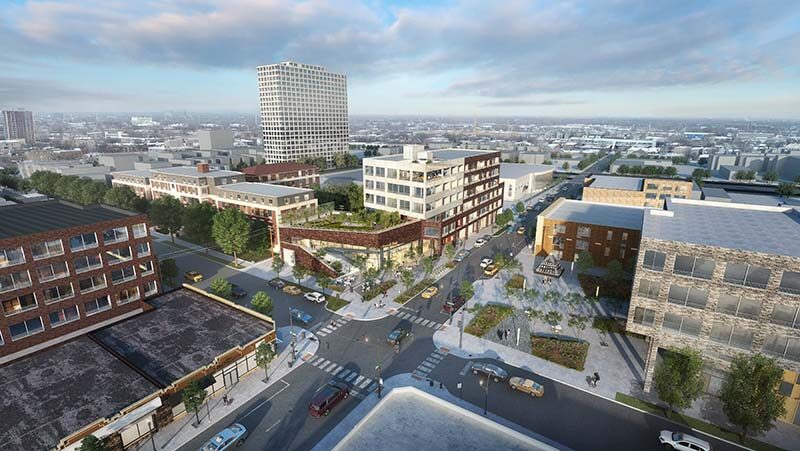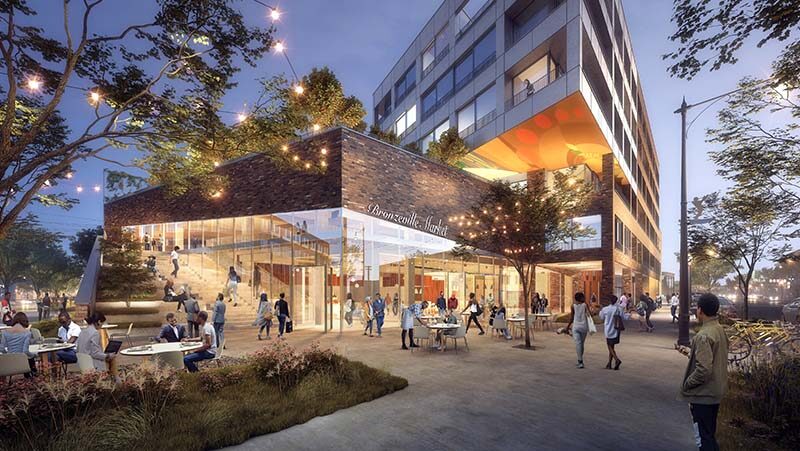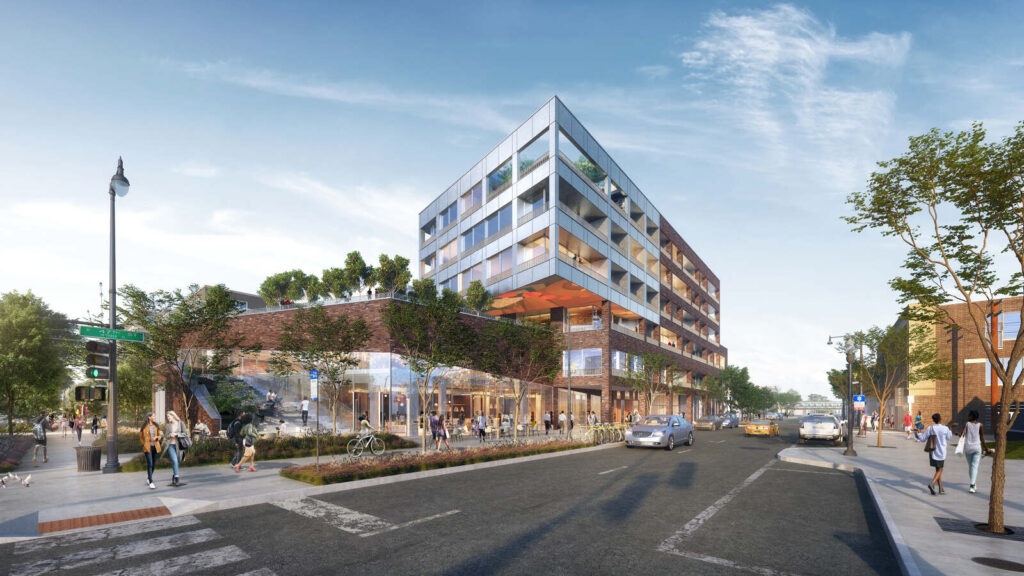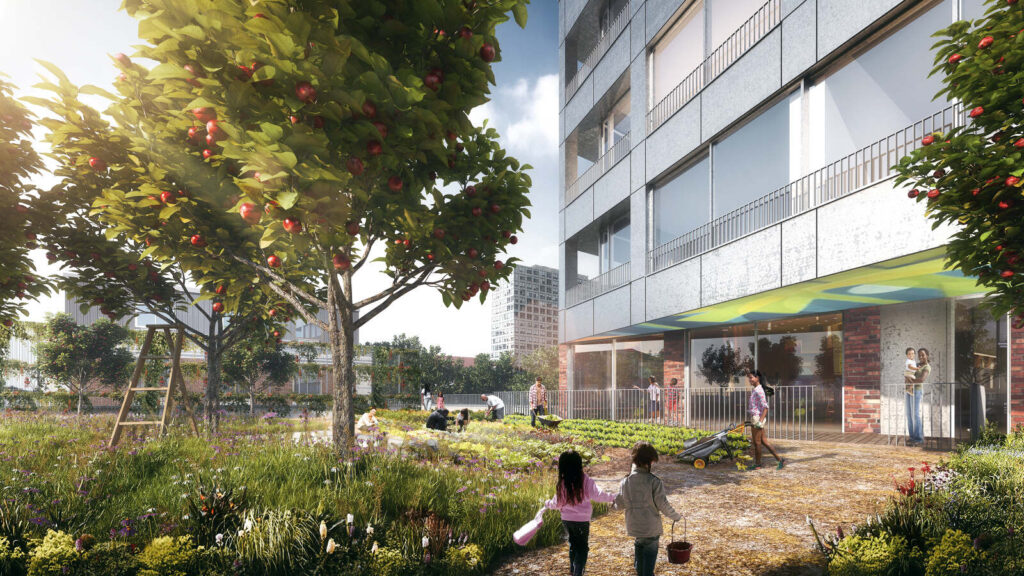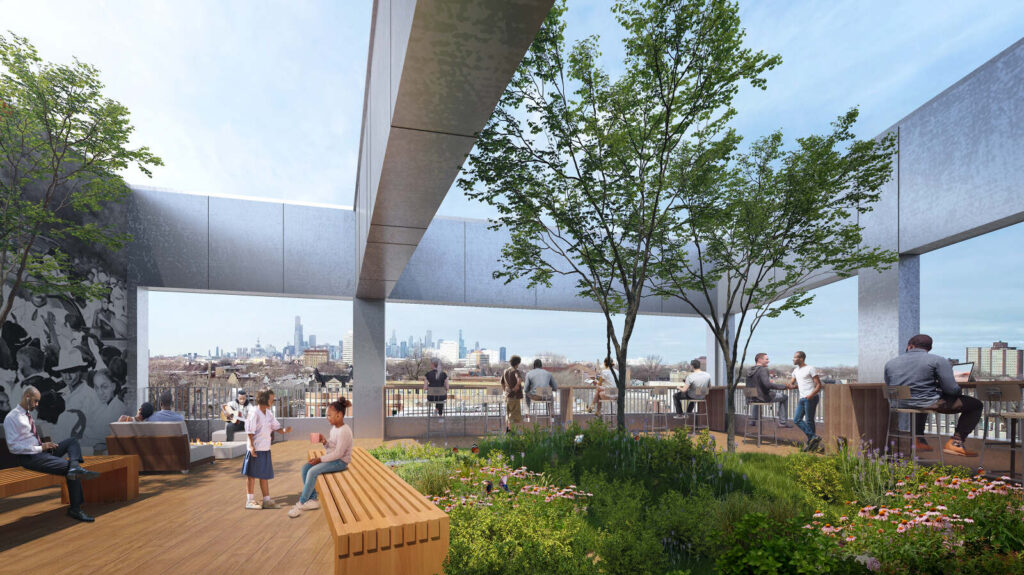A mixed-use development designed by Lars Gräbner and Christina Hansen — members of Taubman College’s architecture faculty and co-founders of the Detroit–based studio VolumeOne — recently was named as one of four projects to be funded by the City of Chicago’s Invest South/West initiative.
Invest South/West was conceived to spur development in disadvantaged communities. Gräbner and Hansen’s mixed-use development, “The Legacy District,” is a $19 million project that will be transformative and pivotal for the Bronzeville neighborhood, which is south of Chicago’s Loop and northwest of Hyde Park.
“The project not only will create sought-after housing units but is even more effective for the economic and cultural development of the neighborhood,” said Gräbner and Hansen. Gräbner is an associate professor of practice in architecture; Hansen is a lecturer in architecture.
The Legacy District expresses cultural vitality, fosters pride, and creates a sense of place through a characteristic identity and quality open spaces. The form of the building is generated like a folded ribbon, derived from the scale of the historic lowrise commercial buildings around the site. While winding up to include scales and proportions of larger neighboring buildings, a sculptural façade toward a newly generated urban open space is formed. Within the form of the building, local art will be a valuable and integrative component of the design.
Perceived as Bronzeville’s food, art, and culture corridor, the neighborhood offers a historically active and vibrant art and music scene, which is complemented by the integration of the proposed corner plaza, which offers spill-out space for the food market and the adjacent colonnade along 47th Street to activate the street and diversify spatial qualities within the corridor. The envisioned two-story flexible and adaptable culinary and entrepreneurial space is programmatically and spatially adaptable to neighborhood needs and changing businesses over time. It will serve as a catalyst for business development in conjunction with the YWCA, the support of food training and entrepreneurship, and opportunities for community events of different kinds.
The proposal is designed to be family oriented, with two-thirds of the units being large, three-bedroom units and about one-third being two-bedroom units. Healthy living is promoted by integrating balconies for all units and every bedroom and living room. Many units include additional gardens and terraces. The 4,700 square-foot rooftop farm not only provides residents with proximal access to nature and a space for gardening but also opens opportunities for educational programming. Additionally, the rooftop farm is envisioned as a vital resource for food entrepreneurs in the building.
Watch a video presentation about The Legacy District.
From The Legacy District project:
